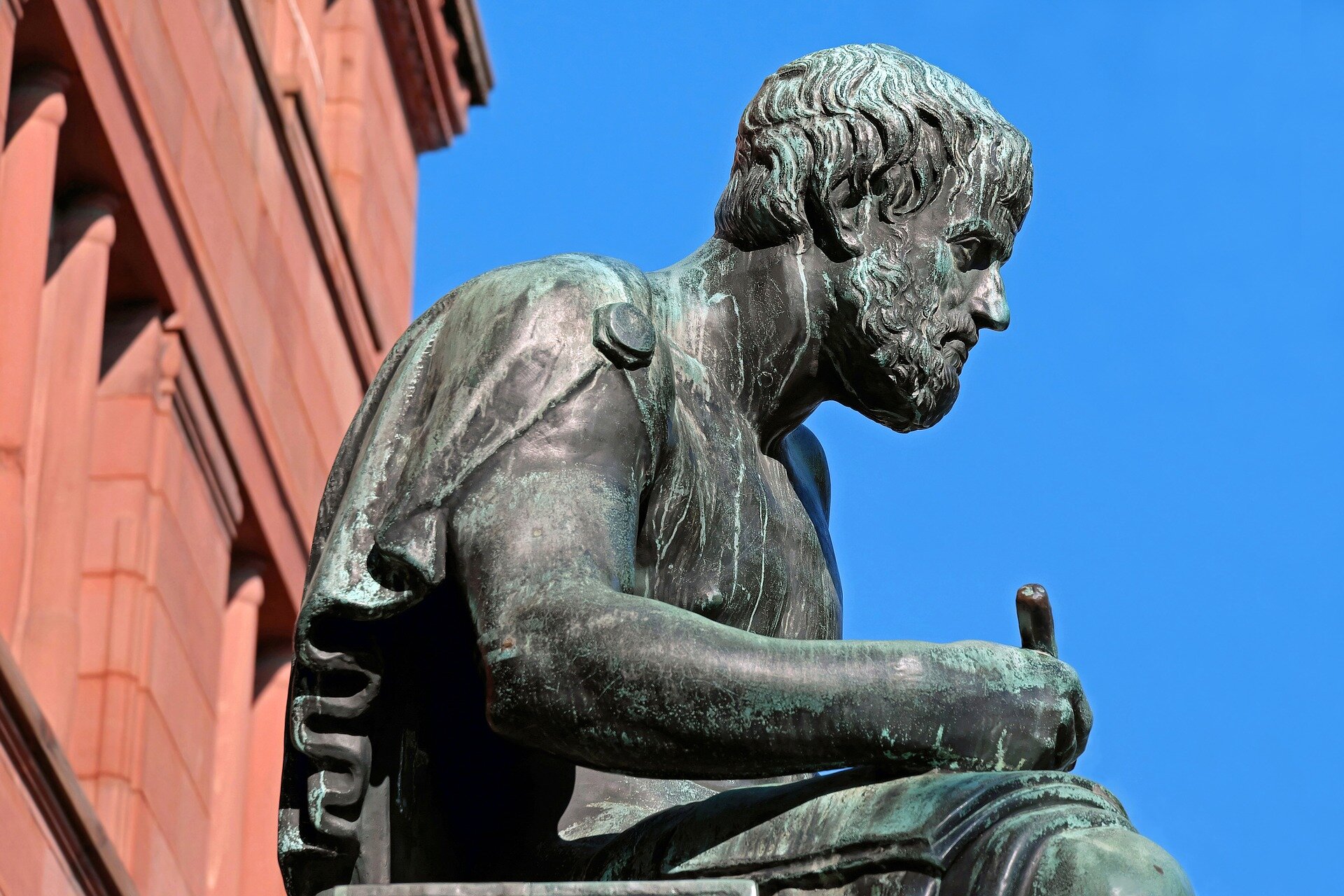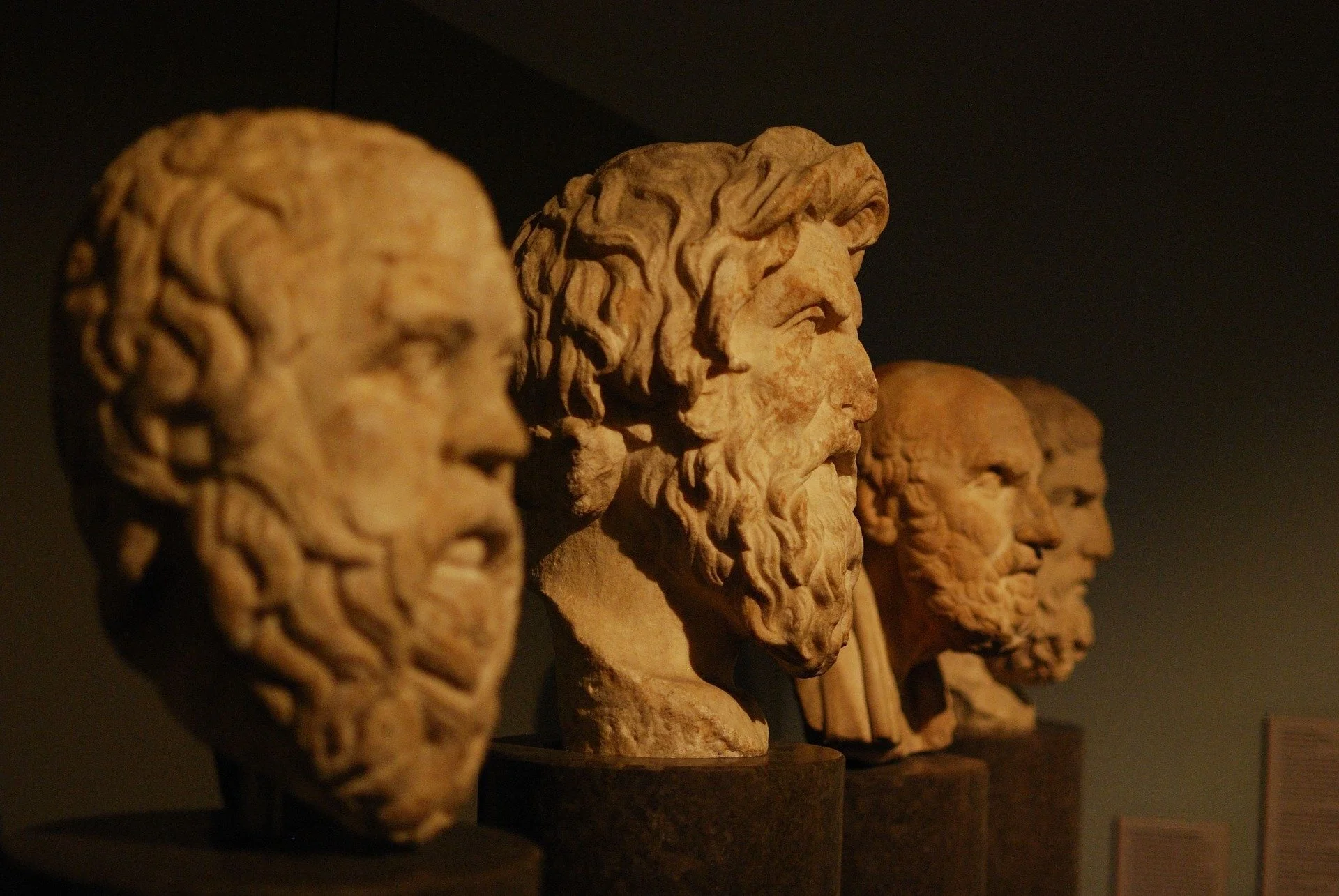Will We Ever Recover These Lost Works of Philosophy?
Although we are fortunate to have as many philosophical works from the ancient world as we do, only a small percentage of philosophical works from from antiquity have survived until the present day. Many works that we do have survived because of Arab scholars and Medieval scribes who thankfully preserved, translated, and copied them for posterity. But we have almost no surviving primary-source manuscripts of these philosophical works from the ancient world.
Very rarely an ancient work of philosophy is recovered. In 1879, for example, a papyrus containing one of Aristotle’s short lost works, Constitution of the Athenians, was discovered in Egypt, thus adding to the already impressive but largely incomplete body of Aristotle’s works. (It’s possible, however, that Constitution of the Athenians was actually written by one of Aristotle’s students.)
The few works we do have by Aristotle were never intended for publication. They were largely teaching and lecture notes used at his school in Athens, the Lyceum. Aristotle’s works actually intended for publication were sadly lost, such as the following:
The second book of Aristotle’s Poetics, on the nature of comedy
On the Pythagoreans
Protrepticus, a short work encouraging youth to study philosophy
Aristotle’s dialogues, which the Roman philosopher Cicero called a “river of gold” compared to Plato’s “river of silver.”
Countless other treatises on a wide variety of topics, approximately 200 in number, of which only 31 survive
(Of Aristotle’s over 200 philosophical works, only 31 are known to have survived to the present day.)
I’m not sure why the possibility of recovering lost works of philosophy thrills me so much. Perhaps I’ve always had a taste for esoteric or gnostic philosophy open only to privileged insiders. At this very moment, buried beneath the ground or hidden in a dark corner of some Medieval library, there may be other lost works of Plato or Aristotle or the Presocratic philosophers whose works we know only by reference or in fragments quoted in other surviving works, or perhaps of Roman philosophers—from Cicero to Seneca.
One of my favorite novels, The Plot to Save Socrates by Paul Levinson (Fordham University), deals with this very concept, the recovery of a lost dialogue of Plato. In The Plot to Save Socrates, the recovery of a previously unknown dialogue of Plato prompts an engaging time travel story in which Socrates actually survives the drinking of the hemlock, having been replaced by a duplicate body and escaping into the near future of the 21st century.
(The Plot to Save Socrates by Paul Levinson)
The time travel plot of The Plot to Save Socrates aside, how exciting it would be to be the philologist to recover a lost work of Plato! I can’t help but wonder whether any newly recovered lost works would radically alter our perception of the overall philosophy of those ancient philosophers about whom we philosophy instructors have taught for centuries, ever since their rediscovery in the Middle Ages, or whether we know enough about the overall philosophy of ancient philosophers that the recovery of one of their works would be like finding a missing puzzle piece for a picture puzzle for which we already know what the picture is supposed to look like.
Here is only a partial list of lost works of philosophy from antiquity, in addition to those by Aristotle described above, that, if we are lucky, perhaps one day will be recovered:
Lost works of Anaximander, of which we have only a few fragments
Lost works of Cicero, such as Hortensius, a dialogue on philosophy
Lost works of Democritus, of which we have only a few fragments
Lost works of Diogenes, of which nothing survives
Lost works of Empedocles, of which little survives
Lost works of Heraclitus, which survive only in quoted fragments
Lost works of Posidonius, who had a vast collection of works that survive only in fragments
Lost works of Pythagoras—although much is known about Pythagoras and the Pythagoreans in general, we have none of Pythagoras’s original writings.
Books by Thales: On the Solstice and On the Equinox
Lost works of Timon, of which only fragments quoted by Sextus Empiricus and others survive
Lost works of Zeno of Elea, of which none survive intact
Lost works of Zeno of Citium, which survive only in quoted fragments
Why should we care so much whether we recover these lost works of philosophy. While one could argue that we should expect no surprises if we recover any lost works of Plato or Aristotle, or of Cicero or Seneca, our understanding of the Presocratic philosophers is so fragmentary and second-hand, received through the writings of later philosophers, that it seems more likely that we would gain a richer understanding of any of the Presocratics than of Plato or Aristotle if even one of their lost works is ever recovered.
To me, the Presocratics are shrouded in mystery, partially because we know them only through fragments and partially because of the obscurity of their proto-philosophical attempts to understand the nature of things, the underlying ontological and metaphysical reality underlying the world we see around us with our senses. It’s possible that the worldviews of the Presocratics are more coherent than we believe them to be today (despite Martin Heidegger’s claim that the Presocratics had a better understanding of Being-as-such than later philosophers did), but it’s possible that they are as shrouded in vagueness and obscurity as later philosophers made them out to be in quoting them. Only time will tell whether any of these lost works are recovered, in full or in part.
Which lost works of philosophy would you most like to see recovered, and why? Reply or leave a comment and share your thoughts!









